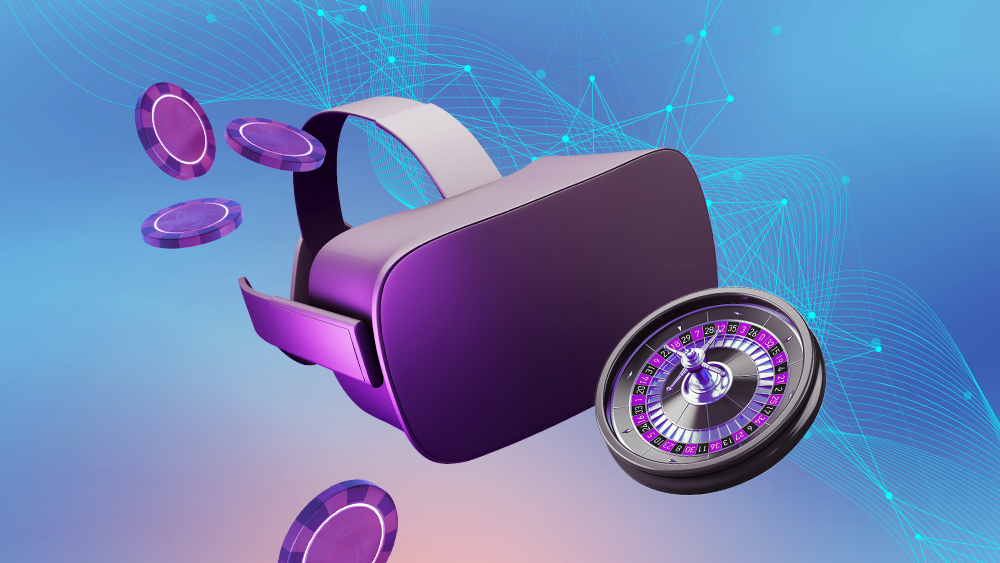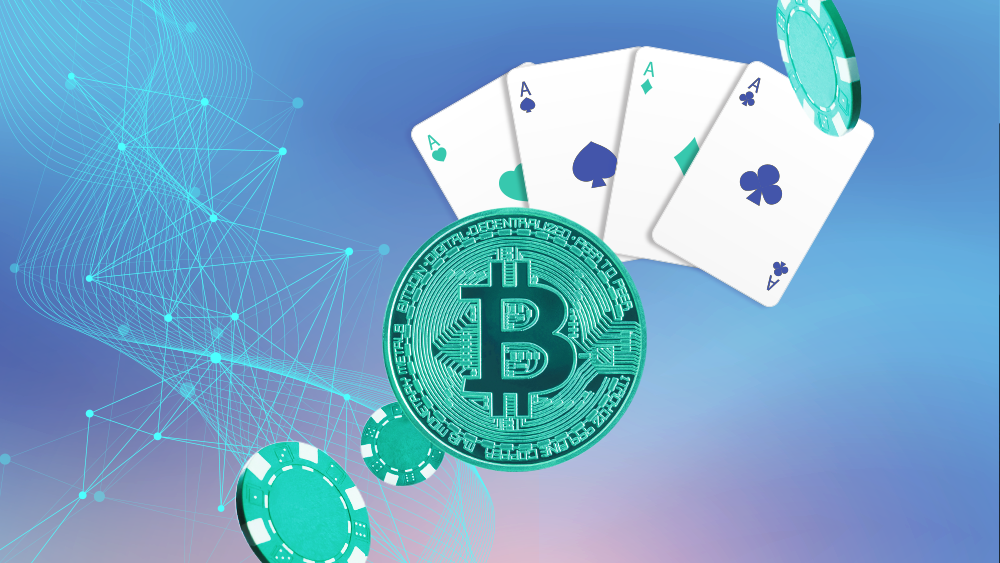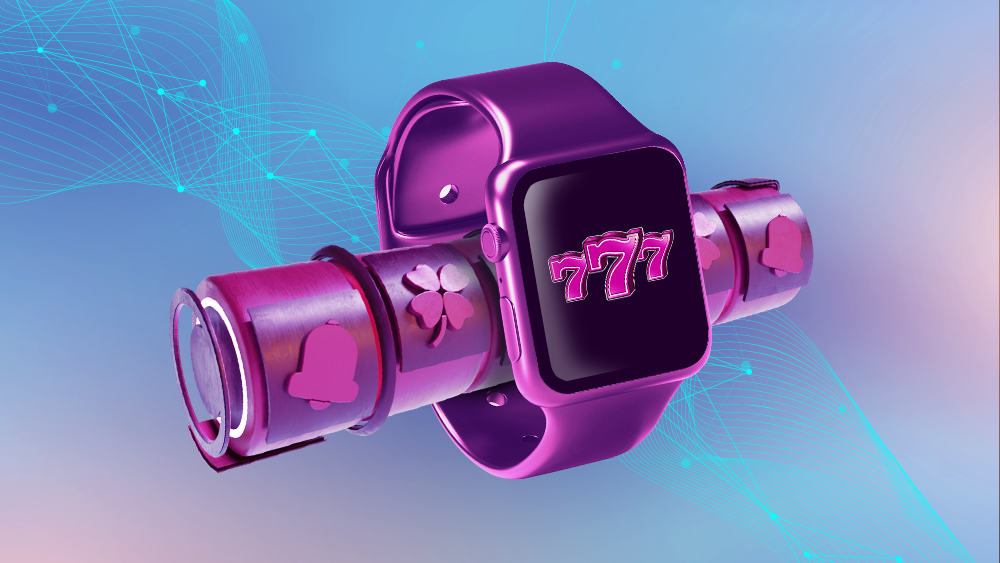The gambling industry has been steadily rising, and experts believe its growth will continue. One of the aspects that is driving the advancement of this industry, is the implementation of new technologies.
iGaming has seen a tremendous rise in popularity and revenue over the last couple of years due to the pandemic. Therefore, the industry is projected to reach $132.90bn by 2029. Now, the industry utilises the latest technological advancements and it aims to enhance security, realism, and engagement.
Let’s explore some of the technological trends that are prevailing in the iGaming industry.

Artificial Intelligence (AI) and Machine Learning (ML)
Artificial intelligence and machine learning will continue to influence the iGaming industry. These technologies can tailor gaming experience to individual preferences by analysing past behaviour. Therefore, it allows iGaming platforms to recommend games and bets based on previous activity.
In addition, AI can improve customer service with virtual assistants and chatbots, resulting in faster response times and a smoother gambling experience. Meanwhile, ML is being used for fraud detection and prevention by identifying unusual behaviour patterns indicative of fraudulent activity.
AI is already entering some of the stages of development of games and software products, as well. Some forward-looking iGaming companies, such as EGT Digital, are already taking advantage of the technology in separate solutions that make some processes more flexible.
These technologies can assist in applying responsible gambling policies by identifying problematic gambling and enforcing self-exclusion tools. By monitoring players’ behaviour, AI might identify signs of problem gambling and suggest help. AI’s ability to respond to player behaviour in real-time allows for a more dynamic and personalized gaming experience, which continues to evolve as the technology advances.

VR and AR experience
Virtual Reality (VR) is not a new technology, however, it has the potential to change the iGaming industry. In the foreseeable future, virtual reality is predicted to enhance online gambling by enabling players to experience immersive virtual casinos powered by advanced technology. Interacting with other players and engaging in lively conversations will be seamlessly integrated into the experience.
This technology has been utilised to create online casinos in a virtual environment. In these immersive settings, users can participate in tournaments or enjoy customised gameplay experiences while representing themselves through their avatars. These experiences are facilitated by different headsets which are constantly evolving.
Augmented Reality (AR) is entering the gambling industry by blending the digital world with the physical environment, offering players a more interactive and engaging experience. AR overlays digital elements in the real world, which is the main difference with VR. With this technology, players can enjoy virtual gaming tables, slot machines, or even roulette wheels right where they are.

Cashless gaming, crypto, and NFTs
Cryptocurrencies like Bitcoin have demonstrated remarkable resilience and continue to gain traction in the gambling industry. With the rise of decentralized finance (DeFi), digital currencies are being actively used in both online and land-based casinos.
E-wallets have become a popular choice among users, and cryptocurrencies have gained widespread acceptance around the world. Those who have adopted cryptocurrencies are unlikely to return to traditional cash payments because of the anonymity it provides, which is highly valued.As a result, cryptocurrency is expected to continue playing a significant role in the financial landscape, although Bitcoin’s dominance may eventually be challenged by other digital currencies. Ethereum and various stablecoins are now offering viable alternatives, particularly due to their improved transaction speeds and lower fees.
Numerous online gaming platforms have already embraced cryptocurrency for both gambling and payments and an increasing number of land-based casinos have also fully integrated crypto payments, making them a permanent option. For a significant portion of players, the convenience, heightened security, and privacy aspects make cryptocurrency their favoured choice for making deposits, facilitating withdrawals, and engaging in gameplay.
Although traditional payment methods will continue to be available, there is a growing likelihood that, for many operators, cryptocurrency will gradually replace these traditional approaches in both land-based and online casinos.
In contrast to cryptocurrencies, NFTs can represent almost anything as an asset, but they are not used for payment.
NFTs can serve various purposes, such as functioning as a game token, serving as a deposit method, or being utilised as rewards. Due to their decentralised nature and unrestricted utility, NFTs are particularly valued by players facing challenges with accessing traditional payment methods. They can be used virtually anywhere, without constraints, offering a versatile solution appreciated by many.

Mobile gaming and Smartwatches
More online casinos are offering mobile applications and adapting their websites to be compatible with smartphones and tablets in order to attract new players and retain the existing ones. Casinos that neglect mobile accessibility in today’s fiercely competitive landscape may struggle.
Key factors like convenience, security, easy mobile payments, and innovative experience are important in making players rely on mobile devices for betting and gaming. Now, they can include smartwatches in their gaming arsenal. Or will they?
Today, it is common to see a smartwatch on almost anyone’s wrist. Surprisingly, according to some reports, the industry is projected to reach $40.57 billion by 2029. Аlthough at first glance, it doesn’t seem like the most convenient option because of the small display size. Still, some apps offer simplified versions of games, allowing users to place bets, view account balances, and receive notifications directly on their watches.
With an increasing number of gaming developers creating new games compatible with various devices, the future of online gambling on smartwatches may expand as wearable technology evolves. Yet, there is a long way to go until a complete gaming experience is reached.

3D, Stream betting, Live dealers
The massive mobile-centric efforts of the iGaming industry were partially driven by the pandemic, but the popularity of many online games such as live dealer games will continue to rise given the increase in search volume, and the preferences of younger audiences for live experiences. In fact, up to 30% of online gamblers now prefer live dealer games over traditional online casino games, highlighting the growing demand for real-time interaction and immersive gameplay.
iGaming has seen a number of recent innovations, some of which concern graphics. 3D visuals have been prominent in many online casino games. Incorporating three-dimensional graphics has several benefits: it increases engagement, adds more realism, and improves interactivity.
The lifelike visuals and animations enhance the attractiveness of games, captivating players and prolonging their engagement. 3D animations facilitate enhanced interactivity within games, enabling players to engage with the virtual environment in a more lifelike manner, including actions like picking up objects or navigating through virtual spaces.
In the recent years, we are seeing another iGaming trend gaining traction – live betting. This style of betting empowers bettors to make wagers while a sporting event is underway, capitalising on shifting odds and the evolving dynamics of the game.
Thanks to advancements in data analytics, and real-time streaming technology, sportsbooks can provide a diverse array of in-play betting opportunities, spanning predictions such as the next soccer goal scorer to the outcome of an esports match.

Telegram Casinos
Telegram casinos have gained popularity within the iGaming industry. Therefore, the messaging app allows online casinos to have their games transmitted into the bot chats of Telegram. By doing this, online casinos can expand their player base.
Therefore, a rising number of players are choosing Telegram casinos and some of the reasons include guaranteed anonymity, easy access from everywhere, and no app restrictions. However, this type of online gambling is far from being licensed by jurisdictions as it is not responding to established standards for safe and responsible gambling.
Conclusion
The iGaming sector is experiencing a technological upheaval powered by mobile gaming, VR/AR, cryptocurrency, and AI. These developments are transforming the landscape of gambling, providing enhanced accessibility, immersive experiences, and superior visual quality. With the constant evolution of technology, the future holds the promise of even more innovation and exciting prospects for iGaming.
FAQ
What is the technology used in casinos?
Casinos use technologies such as Artificial intelligence (AI) and Machine Learning (ML) for personalized gaming experiences and efficient customer service. VR and AR create immersive environments, while blockchain and cryptocurrencies enable secure transactions. Mobile technology ensures accessibility on smartphones and smartwatches, and 3D graphics and live streaming enhance game realism and engagement.
How can the casino industry be improved?
The casino industry can be improved by enhancing security with advanced cybersecurity measures and developing more engaging games using VR, AR, and 3D technologies. AI-driven responsible gambling tools can identify problematic behaviours, and better customer service can be achieved with AI chatbots. Expanding payment options to include cryptocurrencies and ensuring mobile optimization for all platforms will also enhance the player experience.
How does technology affect gambling?
Technology enhances gambling by improving accessibility through mobile and online platforms and securing transactions with advanced encryption and blockchain. AI and ML personalize gaming experiences and promotions, while VR, AR, and 3D graphics create immersive environments. Technology also supports responsible gambling with AI tools and streamlines operations with automated systems.
What is the future of casinos?
The future of casinos includes greater use of VR and AR for immersive experiences and wider adoption of cryptocurrencies for secure transactions. Mobile gaming will continue to grow, with more games optimized for smartphones and smartwatches. AI and ML will enhance personalization and customer service, and live betting will become more dynamic with real-time data and streaming technology.





